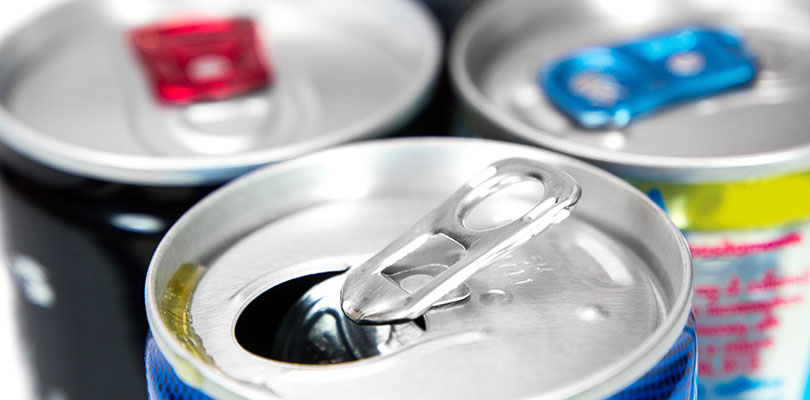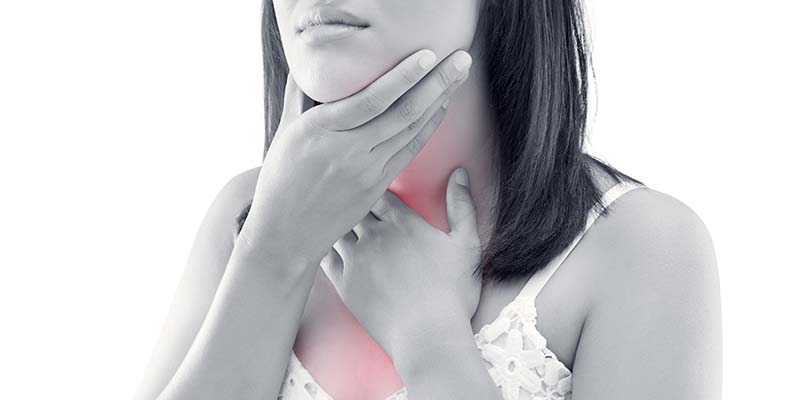Photo Credit: Mauro Matacchione / iStockPhoto.com
The Facts About Your Favorite Mood-Boosting Tonics
Not too long ago, energy drinks were a novelty, something that could rival a strong cup of coffee for those who really needed a boost on the go. Now, energy drinks come in all flavors, colors, types, and sizes to cater to a diverse market of people with one thing in common: there’s never enough time or energy to get everything done.
But does the prevalence, variety, and convenience of energy drinks make them safe? Experts have their concerns, and recent studies suggest these quick fixes might be more damaging than you might have imagined. However, there’s rarely a universal prescription – consider whether energy drinks might be doing you more harm than good.
What’s the Problem?
Energy drinks rely on an array of ingredients to deliver the rush of energy they’re known for, and that concoction can be cause for concern. Stimulants can be helpful in small amounts, but deadly in large doses; one major concern is that some energy drinks may miss the mark.
Labels Can Lie
Marketing is a powerful tool, and an energy drink can easily masquerade as a harmless can of pop. In fact, some energy drinks have escaped the rigid requirements of the FDA, branding themselves as a dietary supplement and neglecting to post a nutrition facts label on the side of the can. Moreover, many energy drinks don’t post how much caffeine and other stimulants they contain, which can leave consumers vulnerable to unwanted effects. On the other hand, some major brands make sure to provide a wealth of info and prudent warnings on their cans, so it’s up to the consumer to look carefully and decide for themselves.
Stimulants Add Up
Most energy drinks have a substantial dose of caffeine – after all, caffeine is one of the most effective compounds when it comes to staying alert and energized. But caffeine isn’t the only issue in energy drinks. Other stimulants like taurine, guarana seed, ginseng, and a lot of sugar join forces to trigger a hormonal shift and chemical reaction in your brain that stimulates your body to behave in unnatural ways. Although most healthy adults can handle up to 400 mg of caffeine a day without adverse effects, the nutritional info on a can of energy drink can neglect to add up all the sources of caffeine correctly.
Physical Discomforts to Expect
Many experts agree that healthy adults can enjoy one energy drink a day without putting themselves at risk for health problems, but that doesn’t mean you’re immune to the discomforts of over-stimulation. While some energy drinkers won’t notice any negative effects, consistent use can bring on:
- Headaches. Caffeine has been known to reduce the throbbing pain of a headache, but too much can have the opposite effect. Couple that with a load of sugar (which brings on a rush of insulin, a drop in blood sugar, and blood flow issues), and you have a recipe for a headache – or worse, a migraine.
- Anxiety. Energy drinks affect people differently: some get a welcome jolt of energy, while those with certain genetic variations in adenosine receptors can become very anxious, very quickly. The more caffeine in the drink, the higher the chance of anxiety episodes, such jittery movements and even panic attacks.
Halitosis, or bad breath, is when an individual emits an odor from their mouth. Thankfully, there are ways to help you get back to having fresh breath.
- Insomnia. The problem with a big hit of artificial energy is that it can interfere with your natural sleep and waking cycles, especially if you’re prone to ingesting it at night. Athletes are especially prone to sleep problems after consuming energy drinks, since they compound the natural stimulation of exercise.
- High blood pressure. You might not be able to feel your blood pressure rising, but if yours is already elevated, you could be setting yourself up for disaster by drinking even one energy drink a day. One recent study found that participants had measurably higher levels of norepinephrine (a hormone related to adrenaline) and higher blood pressure after consuming a can of Rockstar energy drink.
Serious and Long-term Complications
Even if you’re not particularly sensitive to caffeine, and you are able to control your consumption of energy drinks, you might be putting your body at risk with your energy drink habit without realizing it. Short-term discomforts are annoying, but they’re nothing in comparison to these acute and chronic health problems.
Risk of Cardiac Arrest Can Increase Dramatically
The steep rise in blood pressure and norepinephrine that you get after consuming an energy drink can stress your heart, putting your body at risk for cardiovascular and neurological events.
Scientific studies and anecdotal evidence points to a problem with heart rate and heartbeat regularity where energy drinks are concerned. The danger may be traced back to the combination of caffeine and taurine in certain brands: animal studies have shown that these two ingredients intensity each other’s effects. In turn, calcium can build up in the cells of blood vessels in the heart, causing them to contract.
Diabetes
Most energy drinks are very high in sugar – many contain just as much sugar as a can of soda. If you’re drinking a full can each day, you’re taking in far more sugar than your body needs, and you might not even realize it, since you’re focusing on the caffeine or other stimulating compounds instead of the carbohydrates.
Too much sugar will lead straight to weight gain, but it can also compromise the pancreas and promote insulin resistance. Researchers agree that the risk of diabetes increases dramatically when you consume a diet high in sugar, especially the refined type that comes in sweetened beverages.
Dangerous Reactions and Interactions
With their long lists of unusual ingredients, many energy drinks have been known to trigger allergic reactions in vulnerable people. Even a moderate amount could cause everything from itchy skin to airway constriction, if you happen to be sensitive to a particular ingredient.
Drug interactions are another worry. More attention has turned to the dangers of mixing energy drinks with alcohol, and though studies have returned mixed results, some experts maintain that this practice can promote excessive drinking (and all the dangerous consequences that come along with it). Prescription drugs can also interact with certain energy drink ingredients, especially some medications used to treat depression.
There are other possible complications with energy drinks, ranging from vitamin overdose to addiction and hormonal imbalance, but as is the case with so many dietary routines, a lot depends on the individual. If you’re a healthy person without a history of heart issues, and you can exercise restraint, you’re probably in the clear. On the other hand, many doctors would still recommend regular exercise, a good sleep routine, and a cup of morning coffee over a can of artificial energy to get you through your busy day.







